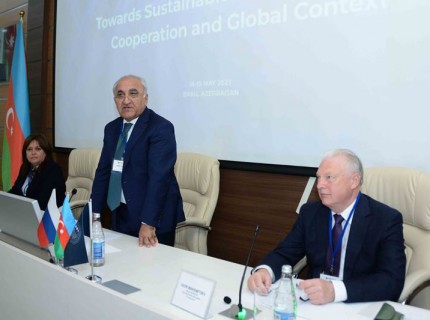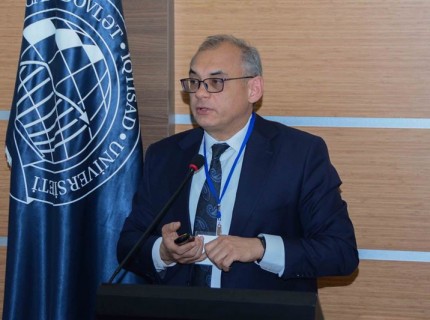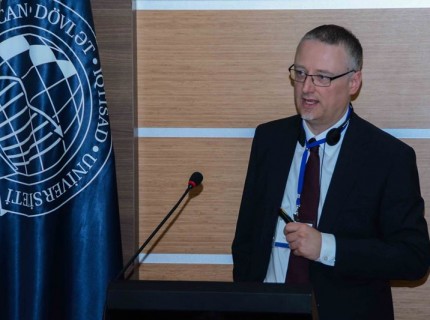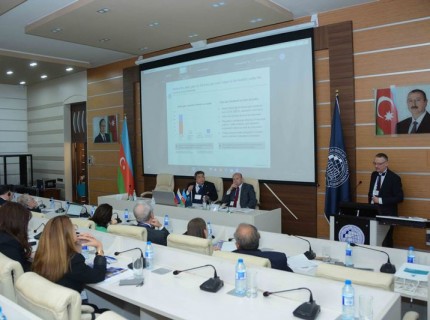An international seminar on “Towards sustainable energy” kicks off at UNEC
A two-day international seminar on “Towards sustainable energy: regional cooperation in a global context” has started at UNEC.
The aim of the seminar, jointly organized by UNEC and St. Petersburg State University of Economics (UNECON), is to exchange knowledge and skills in the field of renewable energy.
Speaking at the opening of the international seminar, the rector of UNEC Professor Adalat Muradov drew attention to the relevance of the topic and said that expanding the use of renewable energy sources is one of the country’s priorities. He emphasized that the creation of a “green energy” zone was taken as a basis for the restoration of territories freed from occupation. The Rector emphasized that the international seminar would play an important role in the exchange of experience related to sustainable energy.
Prof. Adalat Muradov also spoke about the cooperation between the two universities within the framework of the international conference organized on the occasion of the 100th anniversary of the great leader Heydar Aliyev in St. Petersburg.
Rector of St. Petersburg State University of Economics Igor Maksimtsev expressed his satisfaction to be at UNEC and expressed his confidence that the cooperation between both universities would bring positive results. Pointing out that meeting the world’s energy demand without harming the environment is one of the urgent issues, the rector said that Azerbaijan has rich alternative energy sources and that the discussions to be held at the seminar in this direction would be useful.
Deputy Minister of Ecology and Natural Resources, Umayra Taghiyeva, who participated in the seminar, said that the countries of the world are currently identifying renewable energy sources as a priority in the fight against climate change. She emphasized that the use of renewable energy sources is always in the spotlight in Azerbaijan, which is rich in energy resources. The deputy minister expressed confidence that the seminar attended by experts from different countries of the world would make important contributions to solving global challenges related to climate change and wished success to the work of the seminar.
The international seminar continued its work with panel discussions with the participation of experts from Azerbaijan, the USA, Germany, Austria, Romania, Kazakhstan, and Russia.














